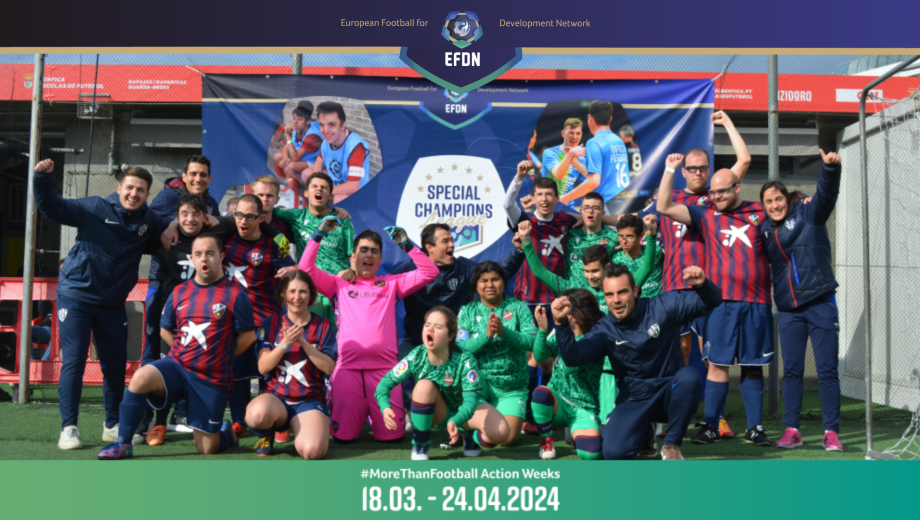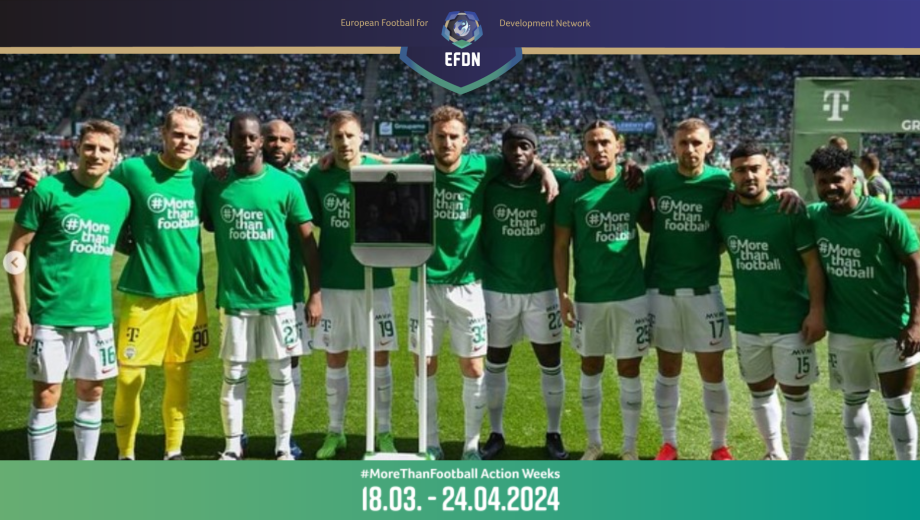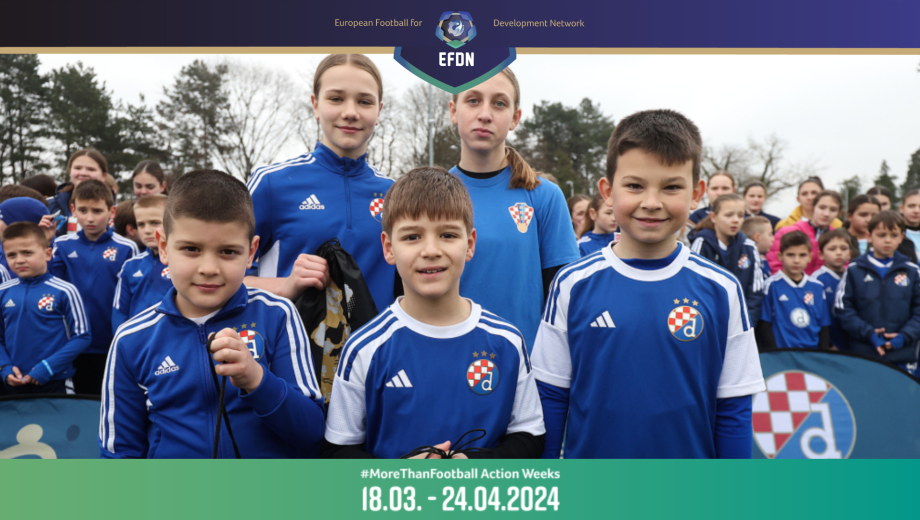WORLD ENVIRONMENT DAY 2021: BEST SUSTAINABILITY PRACTICES FROM THE EFDN NETWORK
The initiative of having a whole day dedicated to the special cause of bringing about a positive change to the ever-growing concept of sustainability, serves as a ‘principal vehicle’ for facilitating awareness and fostering action for the protection of our most valuable resource – mother nature.
World Environment Day, or Eco Day, as it is also called, is celebrated each year on 5th June since its initiation in 1974. At EFDN, we aim to use this occasion to showcase how organisations related to the network have taken important steps in promoting green initiatives and protecting the environment.
Environmental destruction, pollution, unsustainable waste management, global warming etc. have brought about a surge of negative changes in today’s world. But now, in the midst of a pandemic, the months leading to most renowned day for environmental action has witnessed some positive efforts from the football fraternity. In the run to Eco Day, we bring a series of articles, including this one, consisting of resources, innovative sustainability labels, EFDN programmes, Euro 2020 stadiums and more to best guide and inspire organisations and clubs to implement better practices.
Here are some of the best practices from the EFDN community:
LIVERPOOL FC

Liverpool have revealed the club’s Nike home jerseys for the 2021/22 season. The most recent rendition of the famous red jersey takes its inspiration not only from the legendary Bill Shankly’s 1964 season in-charge, but more importantly from the concept of being highly sustainable. For Liverpool, this is the most sustainable kit yet in their roster – fabricated entirely with recycled polyester. Although polyester is a man-made fabric, as opposed to a natural product such as silk, wool or cotton, this version of polyester produced by Nike as part of the company’s ‘Move to Zero’ campaign is made from 100% recycled plastic bottles. This eco-friendly initiative by Nike seeks to help protect the future of the sport with zero carbon and zero waste. In the run to manufacture the end product, plastic bottles are collected, cleaned and melted down to produce durable and high quality yarn through a chemical process. The official jerseys produced by Nike for fans and supporters in stores will undergo the same process. Liverpool’s full red kit owns crimson orange detailed stripes across the front and the same on the sleeve cuffs and neckline.
VFL WOLFSBURG
VfL Wolfsburg have long been at the forefront of environmental awareness and sustainability initiatives. The club from central Germany has been voted as the most environmentally friendly in the Bundesliga, according to Sport Positive, an initiative of BBC Sport backed by the United Nations. It is an organisation that aims to be a leader in the sustainable sports business and ranks Europe’s clubs and leagues in accordance with their commitment to the environment. Wolfsburg has been named as the ‘greenest’ football club in Deutschland due to its efforts based on several metrics such as implementing clean energy, energy efficiency, waste management, water efficiency, sustainable transport, plastic usage reduction etc. – scoring 21 out of 21 i.e. full marks for its efforts to be sustainable. Some key efforts taken by the club include encouraging fans and staff members to travel using public transport, bikes and the use of electric vehicles as part of parent company Volkswagen, the intention to be carbon neutral by 2025 and use of green renewable energy & LED lighting at the Volkswagen Arena.
REAL BETIS
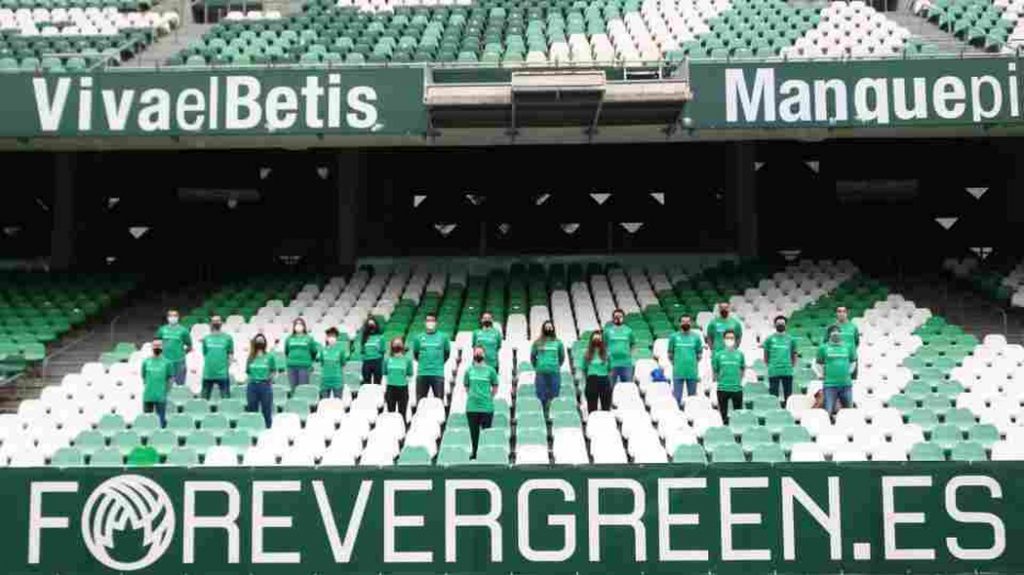
The Seville based club recently announced its sustainability platform called ForeverGreen – an innovative initiative by the club that utilizes the power of the beautiful game to help counter the effects of climate change and promote environmental sustainability. It is an open platform that allows users to involve themselves in different undertakings related to sustainability such as recycling, eco-friendly transportation and mobility, zero paper initiative, reforestation etc. By providing alternatives to supporters, Real Betis have come a long way in establishing themselves as a leader among football clubs for the betterment of planet Earth.
Does your sport organisation want to invest in CSR and sustainability projects? GREENFOOT project partners are organising a webinar focusing on crowdfunding and sports on 8 June. Register here for free.
SOUTHAMPTON FC
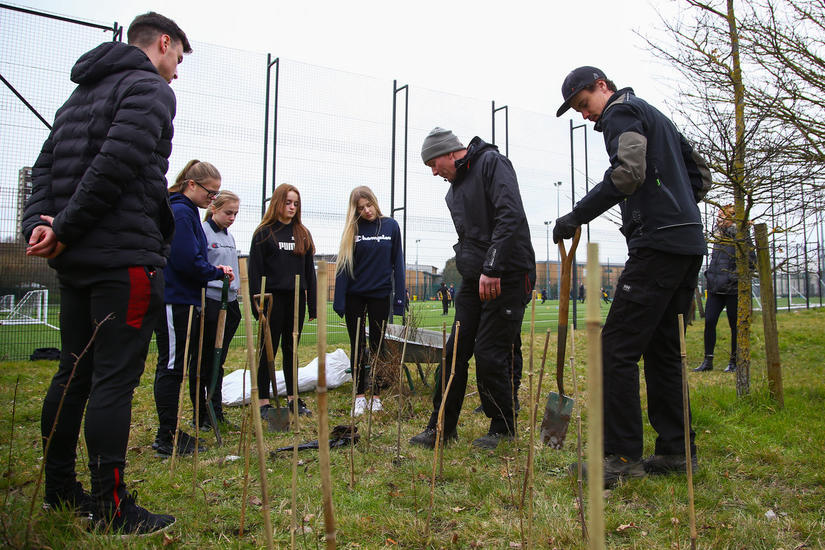
With a goal to be carbon neutral by 2030, Southampton FC and its Saints Foundation are playing their part with an interesting scheme called Home Grown Initiative (part of the club’s The Halo Effect program). It is an undertaking to plant 250 trees in the local Southampton area for every academy graduate that makes their first team debut. According to the club, it will help offset over 3,000 tonnes of carbon emission over the next four years. So far under the program, 1,250 trees have already been planted – 1,000 at the Redbridge Community School & 250 more at the club’s Staplewood training center. The Saints Foundation worked hand-in-hand with the local city council to facilitate the initiative. These trees will line along the perimeter of the complexes they are planted in – absorbing carbon emissions and supplementing the biodiversity of the area.
KAA GENT
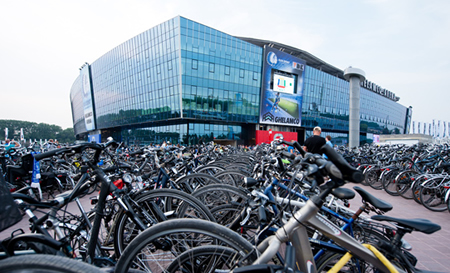
As an initiative for better mobility practices that can offset carbon emissions and improve physical health and well-being, KAA Gent’s mobility policy has served in the best interests of fans, employees and anyone associated with the idea. The port city of Ghent has the largest designated area for cyclists in not only Belgium but in the whole of Europe, with nearly 400 kilometers of intertwining cycle paths. Taking advantage of this fact, Gent has founded ‘Velo Buffalo’ – a meet and greet Facebook group for cycling Buffalos, which promotes a healthy lifestyle, better social life, better physique and less usage of vehicles which helps in reducing carbon emissions. The KAA Gent website also contains an application where cyclists can calculate their ideal route to the Ghelamco Arena, which houses approxmately 4,000 bicycle parking spaces.
FC ST. PAULI
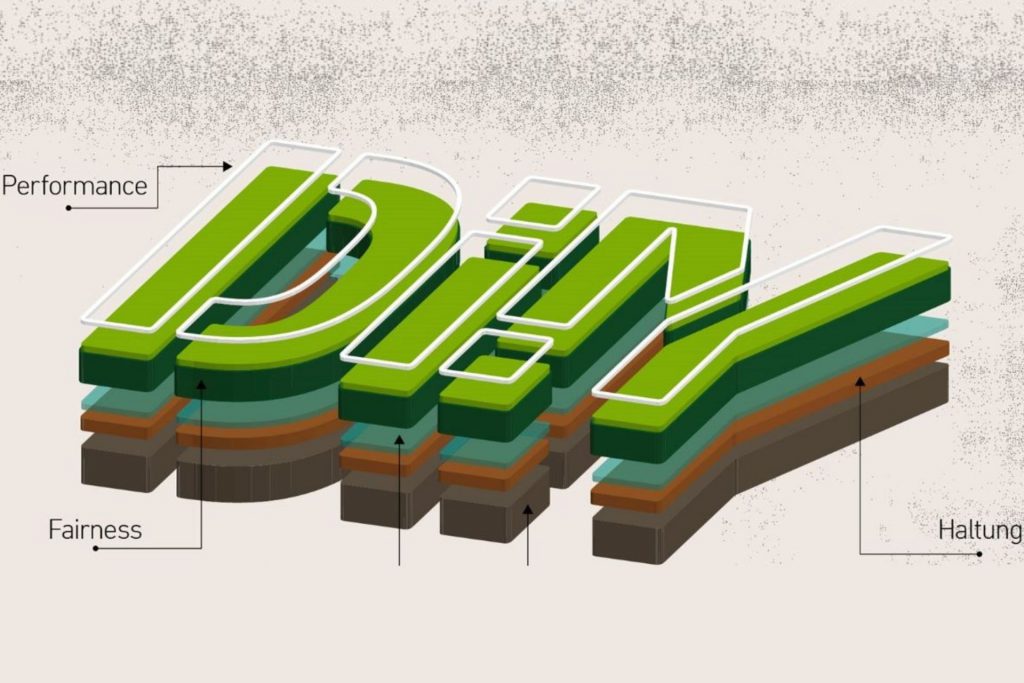
From next season on, FC St. Pauli will play in jerseys of the club’s own production and thus take another important step towards more sustainability in professional sport. FC St. Pauli has been working on the project since 2018 but was also looking for an alternative supplier that produces performance clothing sustainably and transparently and trades fairly. Because no external supplier could fully meet the criteria of FC St. Pauli, the club will take over the production itself in the future. Following the motto “You have to do everything yourself”, FC St. Pauli’s claim is to produce the most sustainable team sport collection in the world with the “DI!Y” brand. The club is responding to the specific wish of its members to continue to pursue the issue of sustainability consistently.
LIVERPOOL FC
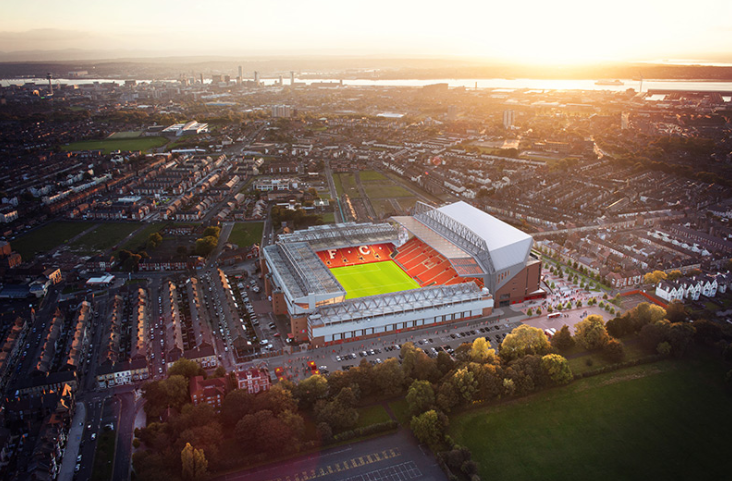
Liverpool’s £60m Anfield Road Expansion plans to revamp Anfield experienced a major blow last year with the onset of the coronavirus pandemic. At the end of 2020, the club announced its intention to submit an application to the City Council for the proposed expansion of the Anfield Road Stand that will increase the overall capacity to 61,000 with the addition of approximately 7,000 seats. The decision on the application will be made in Spring 2021. However, a host of sustainability measures that will be introduced as part of the expansion project has already been declared by the club. It includes the provisioning of solar panels on the roof of the Anfield Road Stand, water management initiatives through better drainage systems, waterless urinals in toilets and low energy lighting to reduce CO2 emissions. Additionally, a comprehensive Construction Environmental Management Plan (CEMP) will be agreed with the local council for better management of construction activities such as noise, dust, emissions and traffic.
Forest Green Rovers are not part of the network but the English club is seen as one of leading football organisations when it comes to environmental initiatives.
FOREST GREEN ROVERS
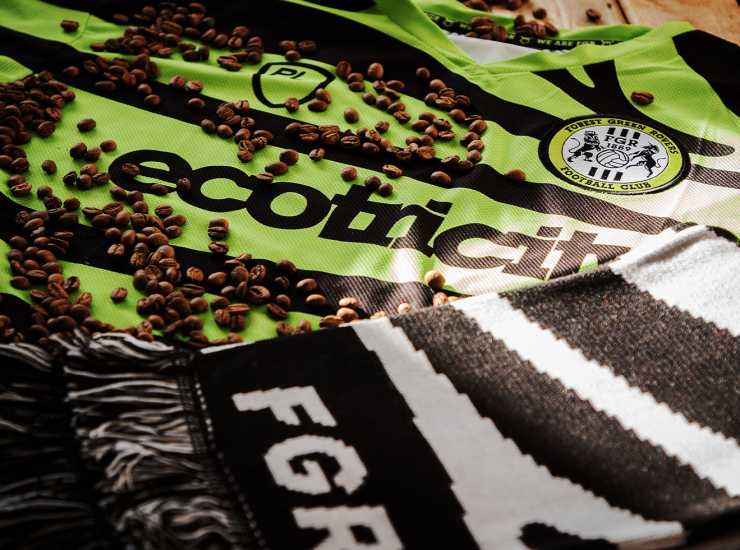
Officially the ‘greenest football club in the world’ according to FIFA, after signing up for the UN Framework Convention on Climate Change (UNFCCC) and becoming the first UN certified carbon neutral football club, Forest Green Rovers are taking environmental sustainability to the next level with truly unique projects. As the only non-EFDN member on the list, Forest Green Rovers stand right for the club’s name. Having already innovated with a bamboo kit couple of years ago, a more sustainable alternative for producing jersey kits has emerged in the ranks of the club – coffee! Recycling three cups of coffee bean waste and five plastic bottles is what it takes to manufacture one single piece of shirt and Dale Vince, the green-energy entrepreneur who owns the club says that according to lab results, the shirts produced are lighter, durable and more airy. Kit partner PlayerLayer are the brains behind the creative innovation. Forest Green Rovers are truly an example to lead with in the sphere of environmental sustainability

